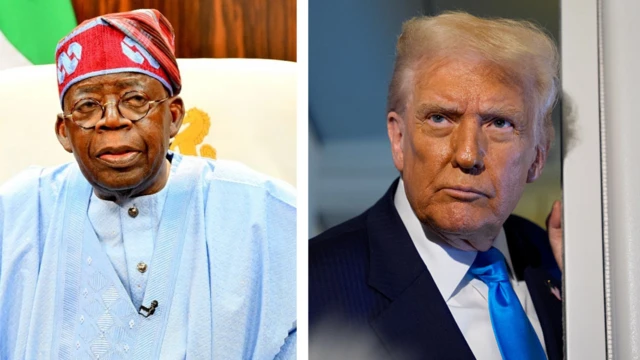In a dramatic escalation of U.S. foreign-policy rhetoric, President Donald Trump announced that he has instructed the U.S. military to prepare for possible action in Nigeria. He cited concerns about the Nigerian government’s alleged failure to protect its Christian population from Islamist militant attacks.
The Claim and Context
Trump declared in a social-media post that Nigeria had been designated a “Country of Particular Concern” due to what he described as an “existential threat” to Christians in the country. He warned that U.S. assistance could be cut unless immediate action was taken:
“If we attack, it will be fast, vicious, and sweet—just like the terrorist thugs attack our cherished Christians!”
While Nigeria is roughly evenly divided between Christians and Muslims, some right-wing U.S. commentators have claimed a genocide against Christians in the country. However, independent monitoring groups say there is no evidence that Christians are being disproportionately targeted compared with Muslims.
Read Also: Mali Closes Schools Nationwide as Armed Group-Led Fuel Blockade Halts Countrywide Movement
Nigeria’s Reaction
Nigeria’s government responded by affirming its commitment to protecting citizens of all faiths. President Bola Tinubu stressed that Nigeria remains “a tolerant society,” while a presidential advisor noted that any j oint military efforts should be just that: joint, respecting Nigeria’s sovereignty.
Implications for U.S., Nigeria and the Region
- Sovereignty concerns: The prospect of U.S. intervention raises sensitive issues about national sovereignty in Africa and the precedent of foreign military action.
- Religious framing: By framing the situation as a Christian-persecution crisis, the U.S. risks complicating Nigeria’s internal security landscape and regional stability.
- Geopolitical ripple effects: An American military role in Nigeria could alter power dynamics in West Africa, where jihadist and militia groups already contest influence.
- Diplomacy over force? Some analysts believe diplomacy and strengthened Nigerian security capabilities would be more effective than direct military intervention.
What Comes Next
The U.S. has not yet announced formal operational plans, and Nigeria has reiterated its preference for partnership that respects its sovereign command of national defence. Observers warn that any miscalculation could undermine regional cooperation against armed groups.

